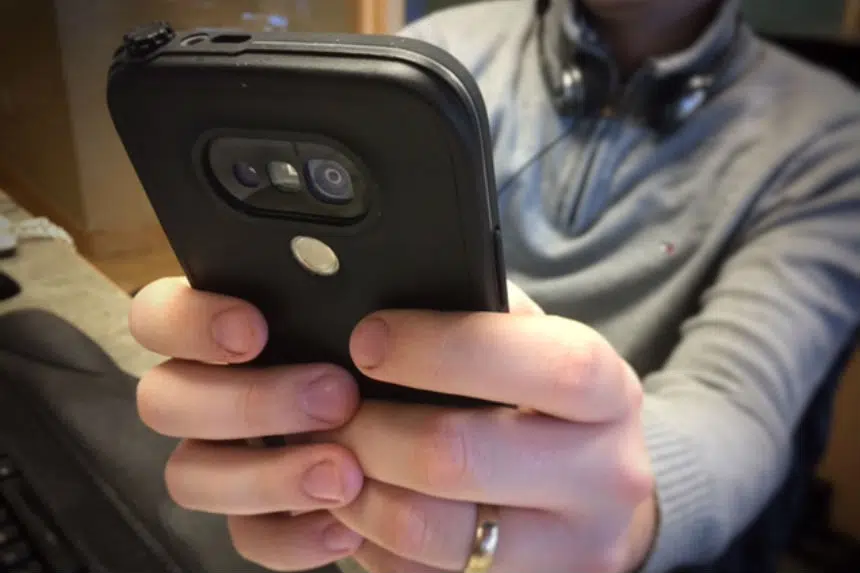A new school year meant new books, new classes, and new rules for some on Tuesday.
This is the first school year with a province-wide cell phone ban in classrooms the provincial government announced in the summer.
Mark Haarmann, the new Director of Education for Regina Public Schools, hoped it would be business as usual with the new blanket policy.
“I think our teachers are excited as well, to have students’ full attention and certainly, in many schools, have had rules in place for some period of time,” said Haarmann.
“Feels like this is going to go well, we’ll be monitoring, making an adjustments internally we need to, but the law is the law and I think our staff are generally pleased and certainly parents appear to be pleased as well.”
He said staff are ready to implement the new rule and students will adjust.
Sean Chase, Director of Education with Regina Catholic Schools, said most of their schools had a cell phone policy for classrooms already — though there was more alignment at the high school level between schools.
Speaking on The Evan Bray Show, he said often there would be cell phone pockets in a classroom with numbers on them for each of the students, and they student would deposit their phone as they arrived and then pick it back up at the end of class.
Chase said it was his experience that most of the problems with phones in schools was outside of classrooms.
“Whether it is used inappropriately in the hallways or towards private spaces like washrooms etc. like that in high schools, to perhaps out and about in recess/break scenarios like that, where students have a little bit more autonomy and a little bit more freedom and perhaps, in some instances, don’t necessarily make the best choices,” Chase said.
Some students may need a phone in class
Both directors of education had concerns about when phones could be used to improve or supplement learning in class.
Haarmann said technology can be a valuable classroom tool.
“Hopefully over the course of time we’ll be able to make some adjustments going forward,” he said.
Chase said there was a big meeting in the division last week to talk about how to navigate the new policies, and he said it might take a bit of time to get through how to manoeuvre it on a day-to-day basis.
He pointed out that for some students the phone can be a crucial learning tool, particularly those who are learning English as a second language and need their phone as a translation device.
“We’ll have to work our way through that a little bit to make sure there are accommodations made and understood with parents and the rest of the classroom, if a student needs that device to help them understand what is the learning lessons that are taking place,” said Chase.
He said teachers are seeing cell phones in the backpack of kids of any age at school, though he said it is rarer the younger they are. He said as of Grade 4 or 5, the vast majority of students have a cell phone or access to a family phone.
“We hear from parents the importance of it from a safety aspect, and certainly understand and respect that as the right of the parents or guardians in terms of looking after their kids,” said Chase.
He said the focus is, and has been for the last decade or so, how to make sure a cell phone is used for the proper purpose in the eyes of teachers during instructional hours.
Read more











